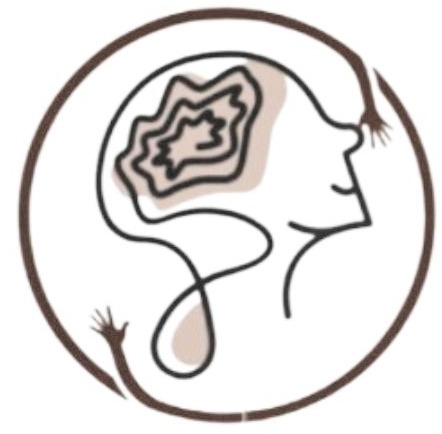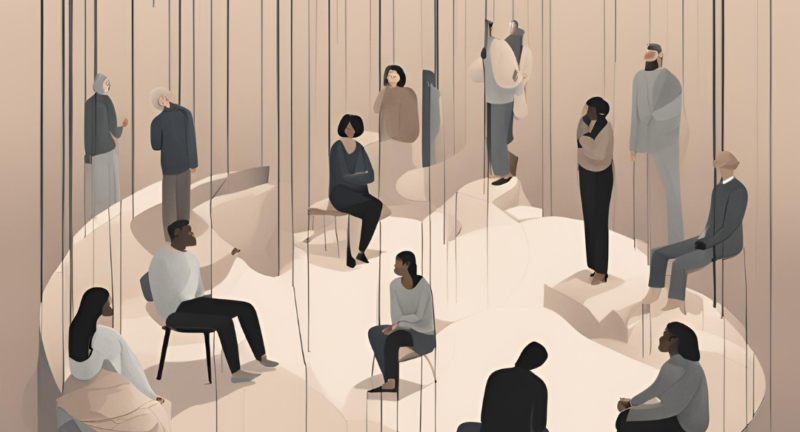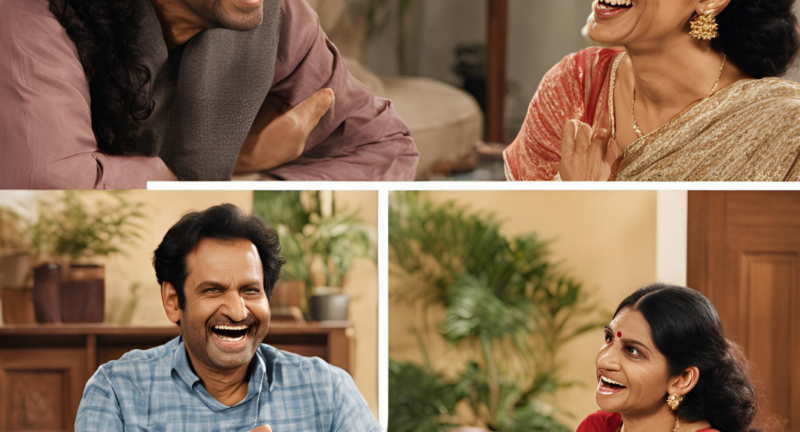
Why Do We Compare Ourselves to Others? A Relational Perspective
Comparison is an almost universal experience. Whether scrolling through social media, observing colleagues at work, or hearing about a friend’s success, we often measure our lives against others. But why do we do this, even when it leaves us feeling diminished or unworthy? From a relational lens, this behavior is not merely superficial or competitive; it reveals deeper psychological dynamics rooted in our sense of self, early relationships, and societal pressures.
The Roots of Comparison in Early Relationships
In psychoanalysis, our early relational experiences shape how we perceive ourselves and others. As infants, we develop our sense of self in relation to caregivers, absorbing their responses to our needs and emotions. When caregivers mirror us positively—reflecting back warmth, love, and validation—we develop a secure sense of self-worth. But when this mirroring is inconsistent, critical, or absent, we may internalize feelings of inadequacy or unworthiness.
Comparison often arises as an extension of this early relational dynamic. If we didn’t receive consistent validation, we might look outward to others as a way of assessing our value. This external reference point becomes a survival strategy to answer internal questions like: Am I good enough? Do I measure up?
The Role of the “Ideal Self”
Psychoanalytic theorists like Donald Winnicott and Heinz Kohut explore the concept of the ideal self, an internalized image of what we believe we should be. This ideal is often shaped by parental expectations, cultural norms, and societal standards. When we compare ourselves to others, we are often measuring ourselves against this idealized version of who we think we ought to be, rather than embracing who we are.
For example, a person might feel inadequate when seeing someone with a successful career or a seemingly perfect family. Beneath the surface, this may reflect unresolved anxieties about meeting internalized expectations of success, competence, or relational fulfillment.
The Cultural Dimension of Comparison
Relational psychoanalysis emphasizes that our identities are shaped not only by personal relationships but also by broader cultural and societal influences. In modern society, comparison is amplified by pervasive cultural messages about success, beauty, and happiness. Social media, in particular, presents curated, idealized versions of people’s lives, making it easy to feel as though we fall short.
Ashis Nandy, in his critique of postcolonial masculinity, highlights how societal pressures create rigid ideals of manliness, success, and strength. Similarly, Sudhir Kakar discusses how familial and cultural dynamics in India often place men under intense pressure to conform to societal expectations. This dynamic is not limited to men; people across genders experience societal pressures that fuel comparison and self-doubt.
The Interplay of Shame and Envy
Comparison often evokes feelings of shame or envy, both of which have deep psychoanalytic roots. Shame arises when we feel exposed, inadequate, or unworthy in comparison to others. Envy, on the other hand, emerges when we desire what someone else has but feel unable to attain it.
These emotions are not inherently “bad”; rather, they are signals pointing to unmet needs or unresolved conflicts within us. For instance, envy of a friend’s thriving career might reveal a deep desire for professional recognition or fulfillment that hasn’t been addressed.
Why We Compare—and How We Can Heal
From a relational perspective, comparison is not simply a flaw in our thinking but a reflection of our human need for connection and validation. We compare ourselves because we long to understand where we stand in the world and how we are valued by others. However, this strategy often backfires, leading to feelings of inadequacy and isolation.
Healing involves shifting the focus inward, reconnecting with our own needs, desires, and values rather than measuring ourselves against external standards. Relational psychotherapy offers a unique space to explore these dynamics. Through the therapeutic relationship, clients can examine how early experiences, societal messages, and internalized ideals contribute to their tendency to compare.
Practical Steps to Move Beyond Comparison
While deep healing takes time, there are steps we can take to reduce the grip of comparison in our daily lives:
Cultivate Self-Awareness: Notice when you are comparing yourself to others and reflect on what triggers these thoughts. Are there patterns tied to specific areas of your life, like relationships, work, or appearance?
Reconnect with Your Values: Ask yourself what truly matters to you, independent of societal expectations. Focusing on your own goals and values can reduce the pull of external comparisons.
Challenge the “Ideal Self”: Reflect on whether your internalized ideals are realistic or even your own. Are they rooted in your true desires, or do they reflect someone else’s expectations?
Practice Gratitude and Self-Compassion: Instead of fixating on what others have, acknowledge your own strengths, achievements, and growth. Treat yourself with the kindness you would offer a friend.
Limit Social Media Exposure: Be mindful of how much time you spend on platforms that amplify comparison. Consider curating your feed to include content that inspires rather than diminishes you.
Conclusion
Comparing ourselves to others is a deeply human tendency, shaped by our early relationships, societal pressures, and emotional dynamics. By understanding the roots of this behavior through a relational and psychoanalytic lens, we can begin to break free from its grip. The journey involves not only exploring the wounds that fuel comparison but also cultivating a deeper connection with ourselves—one that honors our unique worth and experiences. In doing so, we create space for authentic growth, self-acceptance, and meaningful connections with others.
Related Posts
Why Do We Struggle to Set Boundaries? A Relational Perspective
From a relational and psychoanalytic perspective, the difficulty in setting...
Subversion of Women in Indian Society: A Mask of Patriarchy Hidden in Jokes
In Indian society, patriarchy is woven deeply into the fabric of family...


